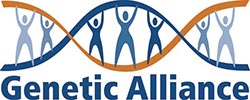 On June 13, the Genetic Alliance announced the launch of an initiative to fill the public information gap caused by the lack of available genetic information for the BRCA1 and BRCA2 genes. According to the Genetic Alliance statement, the Free the Data! initiative, which also includes the University of California San Francisco (UCSF) and InVitae Corporation among its primary founders, will eventually be expanded to provide other types of genetic information in open, searchable databases, including the National Center for Biotechnology Information's database, ClinVar. Not coincidentally, the consortium announced the launch of the initiative on the same day that the Supreme Court was issuing its decision in Association for Molecular Pathology v. Myriad Genetics, Inc., holding that a naturally occurring DNA segment is a product of nature and not patent eligible merely because it has been isolated, and determining that cDNA is patent eligible (with one caveat) because it is not naturally occurring (see Patent Docs posts here and here).
On June 13, the Genetic Alliance announced the launch of an initiative to fill the public information gap caused by the lack of available genetic information for the BRCA1 and BRCA2 genes. According to the Genetic Alliance statement, the Free the Data! initiative, which also includes the University of California San Francisco (UCSF) and InVitae Corporation among its primary founders, will eventually be expanded to provide other types of genetic information in open, searchable databases, including the National Center for Biotechnology Information's database, ClinVar. Not coincidentally, the consortium announced the launch of the initiative on the same day that the Supreme Court was issuing its decision in Association for Molecular Pathology v. Myriad Genetics, Inc., holding that a naturally occurring DNA segment is a product of nature and not patent eligible merely because it has been isolated, and determining that cDNA is patent eligible (with one caveat) because it is not naturally occurring (see Patent Docs posts here and here).
 The Genetic Alliance, which describes itself as "the world's leading nonprofit health advocacy organization committed to transforming health through genetics and promoting an environment of openness centered on the health of individuals, families, and communities," is a network of more than 1,200 disease-specific advocacy organizations, and thousands of universities, private companies, government agencies, and public policy organizations. In announcing the launch of the Free the Data! initiative, the consortium also took the opportunity to applaud the Supreme Court decision eliminating gene patents. Sharon Terry, president and CEO of the Genetic Alliance, noted however that the Supreme Court's "ruling against gene patentability doesn't immediately provide broad access to BRCA 1 and 2 mutations or place them in a public database that will allow for better diagnosis and care," and that the initiative will "enable[] individuals to contribute their information publicly . . . through a customized portal that can be used by all patients and their clinicians in order to improve care."
The Genetic Alliance, which describes itself as "the world's leading nonprofit health advocacy organization committed to transforming health through genetics and promoting an environment of openness centered on the health of individuals, families, and communities," is a network of more than 1,200 disease-specific advocacy organizations, and thousands of universities, private companies, government agencies, and public policy organizations. In announcing the launch of the Free the Data! initiative, the consortium also took the opportunity to applaud the Supreme Court decision eliminating gene patents. Sharon Terry, president and CEO of the Genetic Alliance, noted however that the Supreme Court's "ruling against gene patentability doesn't immediately provide broad access to BRCA 1 and 2 mutations or place them in a public database that will allow for better diagnosis and care," and that the initiative will "enable[] individuals to contribute their information publicly . . . through a customized portal that can be used by all patients and their clinicians in order to improve care."
 According to the Genetic Alliance's announcement, the consortium is inviting individuals "to share their genetic variation on their own terms and with appropriate privacy settings, in a public database so that their families, friends, and clinicians can better understand what the mutation means." The consortium has created a dedicated website where individuals can upload their BRACAnalysis® reports. Before uploading a report, contributors must check a box to confirm that they are "the owner of the attached report and wish to anonymously contribute the variant in it to the ClinVar public database maintained by the NCBI." The site also provides instructions for masking the contributor's name and any identifiable information without obscuring the test results or interpretation of the results.
According to the Genetic Alliance's announcement, the consortium is inviting individuals "to share their genetic variation on their own terms and with appropriate privacy settings, in a public database so that their families, friends, and clinicians can better understand what the mutation means." The consortium has created a dedicated website where individuals can upload their BRACAnalysis® reports. Before uploading a report, contributors must check a box to confirm that they are "the owner of the attached report and wish to anonymously contribute the variant in it to the ClinVar public database maintained by the NCBI." The site also provides instructions for masking the contributor's name and any identifiable information without obscuring the test results or interpretation of the results.
For additional reports on the initiative, please see:
• "A New High-Tech, Grass-Roots Effort to Fight Breast Cancer," Slate, June 25, 2013
• "Coalition Launches Open BRCA Sharing Site, Seeks to 'Liberate' Test Data," GenomeWeb Daily News, June 14, 2013